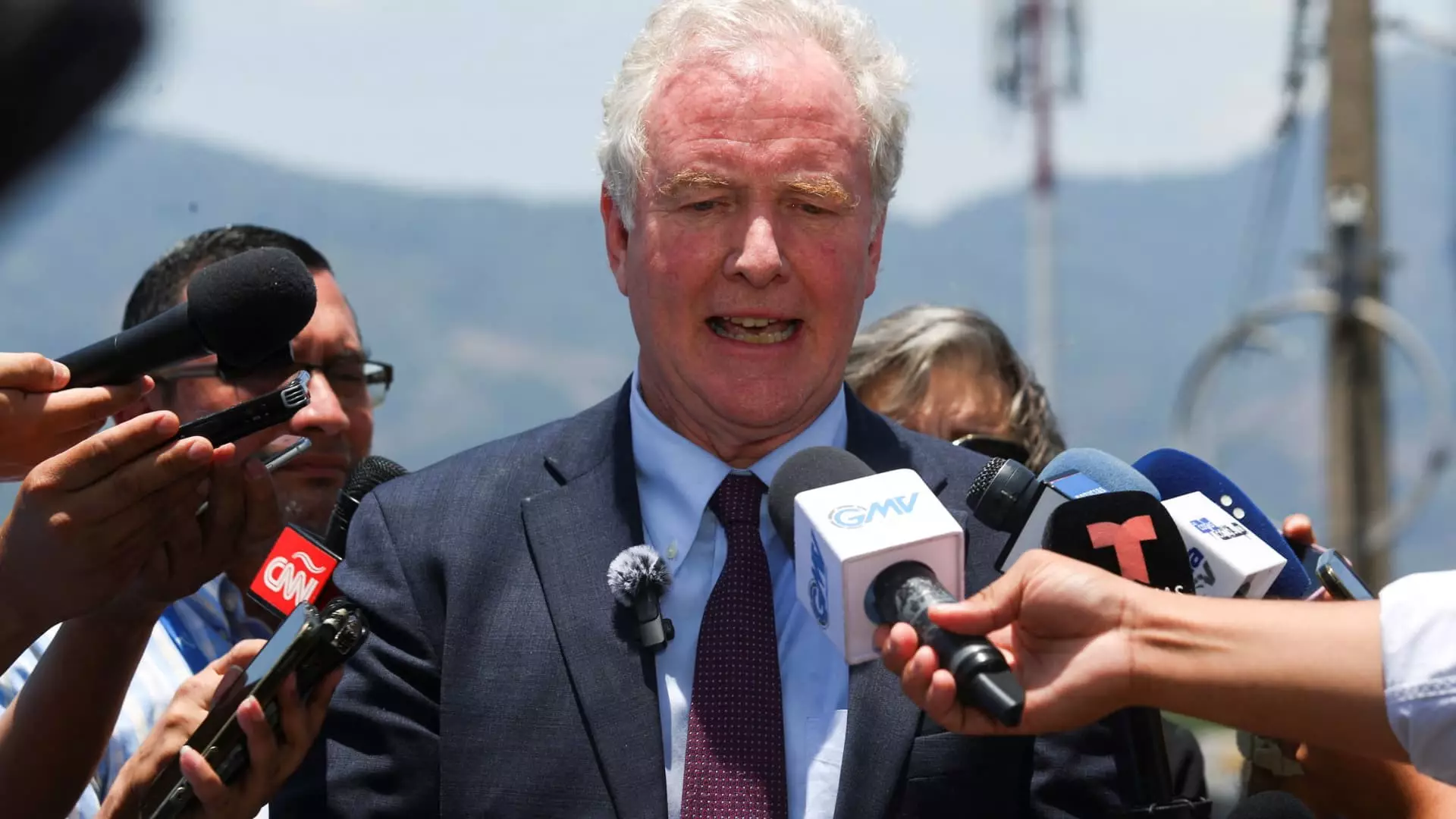The recent ordeal surrounding Kilmar Abrego Garcia underscores an alarming pattern in the U.S. immigration system—one that ties human lives to bureaucratic indifference and political posturing. When Maryland Senator Chris Van Hollen confirmed his meeting with Garcia, who was mistakenly deported to El Salvador despite a court ruling that demanded his return, it wasn’t merely a routine political visit; it symbolized a desperate attempt to address a grave injustice. The story of Abrego Garcia serves as a disheartening illustration of how the immigration process can be weaponized against individuals who are merely seeking a better life.
Garcia’s case reveals a deeper malaise in our political landscape. The Trump administration’s handling of his deportation, characterized as an “attempt to cover up” a wrongful act, shines a light on an administration that frequently disregarded justice for political expediency. Human lives and their rightful claims to existence within the bounds of a legal system were treated as pawns in a larger game of power. This casts a long shadow over those who wish to uphold the principles of human rights and dignity, principles that should be universal, not privileges doled out based on whim.
A Controversial Standoff
Senator Van Hollen’s failed attempt to meet with Abrego Garcia in the CECOT prison, a facility notoriously recognized for its harsh conditions, starkly reflects the political environment surrounding this issue. Such actions exemplify a concerning trend: officials being thwarted in their attempts to ensure accountability and welfare for those in detention. Van Hollen’s exclusion from what should be a straightforward inquiry into the health and well-being of a detainee speaks volumes about the current administration’s stance on transparency and justice in immigration matters.
The audacity of soldiers blocking entry to Garcia, as reported by Van Hollen, points to a troubling synergy between military authority and governmental negligence. This situation places the immigrant experience at the mercy of forces that often prioritize a narrative of nationalism over human compassion. In a world where we should champion the values of empathy and justice, the resistance faced by those trying to intervene is disheartening. The mere act of seeking contact with a vulnerable individual should not provoke a barrier, yet it does, and that raises critical questions about who is actually served by current immigration policies.
Voices of Dissent
Sandwiched between bureaucratic red tape and political grandstanding, the plight of Garcia has also sparked a vocal response from Maryland officials demanding clarity on his status. Their insistence on “verifiable proof” of Garcia’s well-being reflects growing alarm over a system that often operates in virtual silence regarding the treatment of immigrants. It is a testament to the struggle for accountability in a system that can feel unforgivingly opaque, especially to those most affected by its decisions.
Moreover, Garcia’s story highlights how the intersections of nationality, human rights, and law enforcement can culminate in extreme human suffering. The court order prohibiting his deportation was not merely a formality, yet it was easily cast aside. This leads to the unsettling conclusion that legal protections, which should serve as shields against injustice, can too often become mere parchment when power decides to ignore them.
The Broader Implications
The case of Kilmar Abrego Garcia is undeniably tragic and, unfortunately, not unique. It exemplifies a troubling trend in immigration policy where human dignity is sacrificed on the altar of political ideology. The discussions sparked by Garcia’s wrongful deportation can catalyze meaningful dialogues around reforming immigration practices and ensuring that similar injustices do not persist in the shadows. One must reflect upon the responsibility of both individuals and systems alike in fostering an environment where all voices are heard and all lives matter.
While debating immigration policy can be contentious, we must not forget that these debates center around human beings, each carrying their own hopes and fears. The resolute humanity that Senator Van Hollen displayed by advocating for Garcia amidst an unyielding system should inspire us all to demand a kinder, more just approach to immigration. It requires that we cast aside partisan divides and instead focus on the welfare of individuals, fostering a political culture that recognizes the essential worth of every human life.

